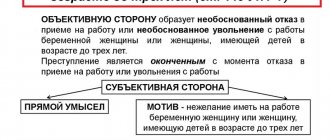The issue of surrogacy is controversial. If in France or Germany you can get up to 3 years in prison for participating in a surrogacy program, then in Russia this reproductive technology is actively developing and is positioned as the only chance to give birth for women who cannot bear a child themselves.
In our material we will consider surrogacy from different aspects: legal, financial and moral-ethical: who can become a surrogate mother and genetic parents according to Russian laws, how the surrogacy process is formalized by an agreement and how the child is transferred; how much do surrogate mothers earn in 2021 and what rights do they have? Why is surrogacy prohibited in most countries of the world, but not in Russia? And what are the prospects that surrogacy will still be banned in Russia?
Legal regulation of surrogacy
Surrogacy has been officially permitted in Russia since 2011. The concept of surrogacy was introduced into official circulation by Federal Law-323 “On the fundamentals of protecting the health of citizens.”
The law regulates surrogacy within a framework and contains requirements for surrogate mothers, restrictions and indications for the use of this reproductive technology.
In Russia, both commercial and non-commercial surrogacy are allowed.
The procedure for using assisted reproductive technologies from 2021 is based on the new Order of the Ministry of Health No. 803n (introduced instead of the expired Order No. 107n). The procedure for using surrogacy as an alternative to the natural birth of a child is based on paragraphs 70-76. Here are the stages, requirements for surrogate mothers and parents.
The Family Code only specifies the specifics of recording information about a child born from a surrogate mother. It says here that genetic parents can be specified as the child's parents only with the consent of the surrogate mother.
The rules for issuing a child’s birth certificate are given in Article 16 of Federal Law-143 “On Acts of Civil Status”.
In addition to these legal acts, relations between surrogate mothers and parents are regulated by agreement .
The procedure for using surrogacy services in Russian legislation is not well regulated. Thus, the laws do not contain liability for surrogate mothers who decide to keep the child or for parents who refuse to participate in the program after pregnancy.
Adoption of a new law
A similar document has already been submitted to the State Duma for consideration. According to the proposed changes, genetic parents will receive legal protection. The official text of the bill was approved by the government; now it needs to be finalized taking into account the comments made, after which it will be submitted to parliament.
Previously, a proposed law to completely ban assisted reproductive technology was rejected.
Read also: Law on the collection of dead wood
What is surrogacy
Surrogacy is the bearing and birth of a child under an agreement between a surrogate mother and potential parents, whose reproductive cells were used for fertilization, or a single woman (Article 55 of Federal Law-323 “On the Fundamentals of Health Protection..”).
A surrogate mother is a woman who carries a fetus after transferring a donor embryo. The surrogate mother herself cannot act as an egg donor. That is, she cannot be the biological mother of the child she is carrying. If the genetic mother requires egg donation, they are taken from another woman.
Requirements for a surrogate mother
A woman aged 20-35 years who has at least one healthy child of her own can become a surrogate mother. Among the legal requirements for a surrogate mother according to Federal Law-323 of 2011 :
- Availability of a medical certificate confirming a satisfactory state of health. The surrogate mother must not have serious illnesses: in particular, mental disorders, HIV or tuberculosis. The procedures for examining a surrogate mother are prescribed in paragraphs. 11, and 15 of the Order of the Ministry of Health No. 107n.
- Availability of written voluntary consent to medical intervention.
- Availability of spouse's consent if the surrogate mother is married.
Also, according to legal norms, a surrogate mother cannot provide her egg if egg donation is required. Thus, a surrogate mother cannot become the biological or genetic mother of a child, since she does not act as an egg donor . The surrogate mother is not genetically related to the child.
Indications for surrogacy
General requirements for biological parents
Biological parents can be:
- officially registered family is the safest option, increasing the chances of easy registration of a child with the registry office;
- a single woman - she will need an anonymous donor of biomaterial, otherwise the procedure follows the standard procedure, but difficulties may arise when registering the child.
Situations of turning to surrogate mothers for married couples in which the woman or man are not capable of conceiving in principle remain outside the scope of legislative regulation. Although in practice the procedure is available to them too.
In Russia, single men and same-sex couples cannot use the services of a surrogate mother. But they can defend their right to register a child in court: there are already similar precedents.
Medical indications
The desire to use the services of a surrogate mother is not enough. Potential parents must have medical conditions that do not allow them to give birth and carry a child to term on their own. Such reasons are (based on clause 70 of Order No. 803n):
- absence of uterus;
- deformation of the cavity or cervix;
- endometrial pathology;
- diseases from the list: renal failure, neoplasms, heart disease, etc.;
- 3 or more unsuccessful IVF attempts;
- habitual miscarriage not associated with genetic pathology.
To use the services of a surrogate mother, a condition must be met: the parents themselves cannot carry and give birth to a child naturally for medical reasons:
Indications
Before understanding how surrogacy occurs, it is worth understanding in what situations it is necessary to resort to the use of such a practice. In most cases, substitute motherhood is necessary for those couples in which there is a female factor of infertility. There are several reasons for the development of this condition:
- The pregnancy period will definitely be associated with physical harm to the woman’s body, or may become a real threat to life;
- Problems with the physiological development of the reproductive organ, for example, absence or underdevelopment;
- Severe pathologies of the uterus that cannot be cured;
- Previously carried out 3 or more unsuccessful attempts at in vitro fertilization.
In each of the described situations, if a woman or a married couple wants to become parents in any way, they have no choice but to use the services of a surrogate mother.
The procedure of the assisted reproductive technology under consideration involves the participation of three parties in the process:
First of all, the question arises whether it is possible to use the eggs of a surrogate mother for fertilization.
There is such a type of procedure as traditional substitute motherhood. In this case, the woman who agreed to carry the fetus uses her own eggs to conceive it. As a result, she gives birth to her own genetic child. After this, the surrogate mother writes an official refusal of the baby in favor of the genetic father and his wife.
It is worth paying special attention to the fact that in Russia such a procedure is prohibited by law. Actually, even if it is not possible to obtain an egg from a biological mother, you can use donor oocytes and implant them in the uterine cavity of a surrogate mother
Indications for such manipulations are complex genetic diseases, in which the child will definitely inherit them after birth.
USEFUL INFORMATION: Drugs to stimulate ovulation, list of popular ones
There are also such concepts as full and gestational surrogacy. Here it turns out that the woman is not carrying her own genetic child, but someone else’s. Thus, at the biological level, the parents are definitely the spouses who donated their reproductive cells for fertilization.
Who can become a surrogate mother
General requirements
The legislation contains the following requirements for surrogate mothers (according to Part 10 of Article 55 of 323-FZ):
- age from 20 to 35 years;
- the presence of at least one healthy child;
- absence of medical contraindications based on examination results;
- provided written information and consent to medical intervention.
If a woman is married, she can become a surrogate mother only with the written consent of her spouse.
The requirements in the law are quite strict, but that's not all. Medical centers that act as intermediaries between parents and a surrogate mother may have additional requirements for applicants. For example, Russian citizenship, no history of cesarean section, no bad habits, no more than 2 independent births, positive blood type, etc. Positive experience of participating in a similar program is also taken into account.
Health status
Before becoming a surrogate mother, a woman undergoes a comprehensive medical examination to ensure the absence of diseases from the list. These are, in particular, tuberculosis, viral hepatitis, HIV, syphilis, mental disorders, etc.
Before participating in the program, the surrogate mother must provide the results of fluorography, ECG, blood tests, mammography, gynecological and cytological examinations, etc., and also undergo consultation with the following specialists:
- therapist;
- genetics;
- gynecologist;
- endocrinologist;
- psychiatrist.
A new requirement from Order No. 803n was that, in addition to mandatory medical examinations, the surrogate mother must provide certificates from drug treatment and psychoneurological dispensaries (clause 74 of Order No. 803n).
The legislative framework
In the Russian Federation there is no separate law regulating surrogacy, but there is still a legislative basis. It consists of a number of laws and by-laws.
Basic laws that regulate surrogacy:
- Article 55 of Federal Law No. 323-FZ of November 21, 2017 “On the fundamentals of protecting the health of citizens in the Russian Federation” is the main law in this area, as it defines surrogacy, establishes the basic requirements for a surrogate mother and generally allows the use of assisted reproductive technologies (ART) in Russia.
- Order of the Ministry of Health of the Russian Federation No. 107n dated February 30, 2012 “On the procedure for using assisted reproductive technologies, contraindications and restrictions on their use” defines the requirements for in vitro fertilization (IVF), as well as mandatory medical examinations and procedures that must precede it. Thus, this legislative document fully regulates the medical side of this area.
- Articles 51 and 52 of the Family Code of the Russian Federation determine the procedure for registering in the birth register of children born as a result of embryo implantation into another woman. In accordance with these articles, spouses who have given appropriate consent can be registered as parents only with the consent of the surrogate mother. Also, after making an entry in the book about the birth of children, neither the surrogate mother nor the spouses have the right to challenge the rights of paternity and maternity.
- Article 16 of Federal Law No. 143-FZ of November 15, 1997 “On Civil Status Acts” regulates the process of registration with the civil registry office of children born under the surrogacy program. Thus, when preparing documents, parents are required to provide a birth certificate for the child from the medical institution where IVF was carried out and the written consent of the woman who carried it, that the spouses be registered as parents.
The listed legislative acts do not cover all existing legal aspects of surrogacy, which is why many questions arise in practice. Professional lawyers working in this area note the imperfection and lack of development of laws, as well as the need to create a separate legal document that would completely regulate the process of artificial insemination and the subsequent registration of documents and establishment of rights.
In 2021, a legislative draft was introduced to the State Duma of the Russian Federation to ban surrogacy in the country with reference to Western countries where a similar ban was approved. However, the bill was rejected because IVF remains the only hope of finding a child for spouses who cannot give birth on their own.
Who has the right to be a surrogate mother by law?
The requirements for a surrogate mother are established by Article 55 of the Federal Law-323, “On the fundamentals of protecting the health of citizens in the Russian Federation.” In accordance with paragraph 10 of Art. 55, a woman who claims to bear a fetus as a result of IVF must meet the following conditions:
- age ranging from 20 to 35 years;
- having one or more own healthy children;
- availability of a medical certificate of good health that meets the necessary requirements established by Order of the Ministry of Health No. 107n;
- written informed voluntary consent to medical intervention;
- written consent of the spouse.
By law, a surrogate mother cannot simultaneously be an egg donor.
Legal side: procedure for registering surrogate mother services
A simplified process of cooperation between genetic parents and a surrogate mother is as follows:
- Selection of a surrogate mother.
- Reaching agreement on the terms of cooperation and signing an agreement.
- Going through the IVF procedure, pregnancy and childbirth.
- Consent of the surrogate mother to register the child.
- Registration of a birth certificate.
- Transfer of fees to the surrogate mother.
Conclusion of an agreement
The rights and obligations of genetic parents and surrogate mothers are based on the provisions of the service agreement. Concluding an agreement between the parties is a mandatory stage of cooperation. The agreement does not have to be notarized; the document will still have legal force.
It is signed by the parents and the surrogate mother, sometimes through the mediation of a third party - an agency or clinic for reproductive technologies.
The surrogacy contract does not have a unified form, but includes the following points:
- Subject of the agreement: this is a service for bearing and giving birth to a child. Important: children cannot be the subject of the transaction.
- Parties to the contract.
- Rights and obligations of the parties.
- Cost of surrogate mother services and payment procedure.
The responsibilities of biological parents include timely transfer of the embryo for fertilization and payment for the services of the surrogate mother. They must also pay for the necessary medical examinations, medications, food, etc. The list of expenses that the parents will bear is also indicated in the contract.
While the list of responsibilities of a surrogate mother is usually wider:
- Provide consent to the registration of the child by biological parents for the civil registry office.
- Timely completion of medical examinations to monitor the state of pregnancy, compliance with doctor’s recommendations, proper nutrition, absence of bad habits, etc.
- Informing parents about the threats and difficulties encountered during pregnancy.
- Registration and childbirth in a medical institution chosen by the parents.
- Creating favorable conditions for bearing a child.
The agreement also stipulates the procedure for obtaining a birth certificate, the dependence of the amount of remuneration on the outcome of the pregnancy, the responsibility of the parties in case of violation of the agreement, the procedure for paying the agreement and other aspects at the discretion of the parties.
A separate clause of the contract is usually devoted to prohibitions and the surrogate mother’s responsibility for violating them. For example, there may be prohibitions on:
- contact with animals (due to the risk of toxoplasmosis);
- to visit a public bath, sauna or swimming pool;
- to heavy physical activity;
- traveling outside the city without the consent of genetic parents.
The contract also stipulates possible force majeure circumstances:
- termination of pregnancy for reasons beyond the control of the surrogate mother (for example, miscarriage) - then the woman receives compensation for her services;
- death of a woman during childbirth - relatives of the surrogate mother will receive compensation;
- errors by medical personnel during childbirth - the clinic, not the biological parents, will be responsible for this.
Child registration
From the moment the child is born, the services provided by the surrogate mother are considered completed.
A child born to a surrogate mother is registered according to the rules specified in the Family Code and Federal Law-143 “On Civil Status Acts”. According to the current procedure, the consent of the surrogate mother is the most important condition for the parents to register the child.
The child registration process will include the following steps:
- After birth, the surrogate mother will receive a certificate from a medical organization in the prescribed form. She will appear in the “mother” column.
- The surrogate mother conveys her consent to register the child with the biological father and mother . Consent must be in written form, but it is not necessary to have it notarized.
- With these documents, the biological parents come to the registry office and register the child in their name.
Can a surrogate mother refuse to give up a child?
Typically, contracts specify the mother's obligation to provide consent to the transfer of the child to the biological parents. But from a legal point of view, no one has the right to force a woman to give up her child. If the surrogate mother refuses to give the child to the parents, then the chances of challenging her decision will be minimal.
Thus, when resolving such a dispute, the Constitutional Court took the position of the surrogate mother, emphasizing that the transfer of a child to genetic parents occurs only with her written consent.
For refusal to fulfill its obligations under the contract, the surrogate mother faces a fine and other penalties provided for by the Civil Code:
- Compensation for real damage - in other words, the woman will have to return the money for the provision of services. Considering the inconvenience that the mother suffered during pregnancy, the parents will receive partial compensation.
- Moral compensation for harm caused.
Rules for drawing up a surrogacy agreement
In accordance with the provisions of paragraph 9 of Article 55, a surrogacy contract is concluded between a woman who carries a fetus from the moment of IVF until the subsequent birth of the child and spouses or potential parents who are donors of germ cells that are used in artificial insemination. The contract can also be concluded between a surrogate mother and a single woman who, due to medical circumstances, cannot bear and give birth to a child.
The surrogacy agreement is the main document, which, in the event of controversial issues, has legal force and is capable of protecting the rights of one of the parties in court proceedings. However, there is no approved form for its preparation. In each individual case, the agreement is drawn up individually, taking into account the specific circumstances of the situation.
Due to the importance of the document, the contract should only be drawn up with the consultation and participation of a specialized lawyer competent in this field. All provisions of the agreement are accepted with mutual consent of the parties, as well as taking into account the legislation of the Russian Federation
The agreement must not violate or infringe the rights of one of the parties and go beyond the laws of the Russian Federation.
When drawing up an agreement, the following key provisions should be taken into account:
- Subject of the agreement. This paragraph indicates the essence of the service, which is the pregnancy and birth of a child. Here the conditions for fulfilling the contract are determined, which constitute the birth of a child, including premature birth. Children cannot be the subject of the contract, since it is concluded only for the provision of a highly specialized service.
- Parties to the contract. In addition to the parties to the agreement, which are the biological parents and the woman carrying the fetus, other interested parties may be indicated, which may be: lawyers who drew up this agreement, medical institutions and doctors performing IVF and monitoring the health status of the surrogate mother.
- Rights and obligations of the parties. Legislative norms are described and relevant links to legal documents are provided.
- Contract price. The cost of the service provided is indicated, including the cost of financial support for the mother during pregnancy, medical examination and treatment if complications arise, as well as other compensation. Additional terms and conditions. Additional provisions are described depending on the individual case.
Risks
The legislation of the Russian Federation does not provide for special measures of liability for termination of a surrogacy contract or violation by one of the parties of its terms. In this case, the provisions of the civil code are used, namely, failure to fulfill the terms of the agreement or unilateral violation of the agreement.
If the mother decides to terminate the surrogacy contract, she will be held liable in accordance with Article 782 of the Civil Code of the Russian Federation and will have to compensate the customer for losses incurred for the invested funds and moral compensation for the lost long-awaited child. However, in accordance with Article 781 of the Civil Code of the Russian Federation, since the mother participated in a number of medical procedures and experienced the hardships of pregnancy for a certain time, the funds allocated for her can be considered compensation for moral damage, so no refund will be provided. There is no clear opinion on this issue and each case is considered separately in court.
How much do surrogate mother services cost?
The cost of surrogate mother services is not established by legal documents and is determined only by the terms of the relevant agreement. The price may be influenced by geographic location, standard of living in a particular region and other individual factors.
In addition to payment for the actual services for bearing and giving birth to a child, the agreement also includes expenses for the maintenance of the mother, payment for possible treatment, necessary medical procedures, medications, legal assistance and other aspects at the discretion of the parties.
USEFUL INFORMATION: First pregnancy after 30 years
In the Russian Federation, the average price for the services of a surrogate mother is set at one and a half million rubles, but in some regions the maximum cost can reach three and a half million rubles.
Financial side
When surrogate mothers are asked about the motives that prompted them to provide this service, most point to the financial aspect. Much less often, a woman agrees to become a surrogate mother out of altruistic motives and a desire to help a childless couple become parents.
By the way, the first recorded case of surrogacy in the CIS was non-profit. In Kharkov in 1995, a woman who carried a child for her daughter became a surrogate mother. As a result, she became a mother and grandmother at the same time.
In Russia, the first surrogate mother was a woman from St. Petersburg, who gave birth to twins for her friend.
How much does surrogacy cost in 2021?
The average payment for surrogate mother services is 1-1.5 million rubles. For twins and difficult births, an additional payment is provided - up to 150-200 thousand rubles. In Moscow and St. Petersburg the amount is higher; in the regions it can be 800-900 thousand rubles.
On the websites of Moscow clinics, prices reach 3 million rubles. , but part of this amount goes to pay for the services of a medical organization: medical examinations, embryo transfer, pregnancy management, childbirth, as well as legal support.
Payment is usually divided into several stages: prepayment and final payment. It can be placed in a safe deposit box until the child is registered with the biological parents.
What does the fee consist of?
The fee for the provision of services by surrogate mothers consists of several components:
- Fixed or variable remuneration. A fixed part of about 1-1.5 million rubles. a woman receives after childbirth.
- Monthly maintenance, payment for enhanced nutrition and vitamins . On average, the amount is 20-30 thousand rubles.
- Payment for medical tests and examinations . In this case, the fee depends on the pricing policy of the medical institution to which the woman applied, as well as the order in which the IVF protocol is carried out, whether donor material and additional technologies are needed for it.
- Compensation for the purchase of clothes for pregnant women : on average 15-20 thousand rubles.
- Compensation for travel and accommodation costs during the last stages of pregnancy.
The surrogate mother's remuneration may depend on several factors:
- number of children - in case of twins, the additional payment can reach 150-200 thousand rubles;
- during pregnancy and childbirth - the amount of additional payment will be 100-150 thousand rubles;
- the presence of additional circumstances aggravating the pregnancy: for example, if a woman agrees to bear a child from a person with HIV infection, then the additional payment for risks will be up to 1.5 million rubles.
- experience in participating in the program: for girls without experience, the fee is 900 thousand rubles. – 1.2 million rubles, for those with experience – from 1-1.5 million rubles.
The surrogate mother may lose part of the remuneration through large fines for smoking and drinking alcohol, disclosing personal data of parents, and failure to fulfill other obligations.
In addition, the surrogate mother is obliged to pay a penalty if the pregnancy was terminated through her fault or if she disrupted the embryo transfer procedure.
Taxes for surrogate mothers
Until 2021, the Ministry of Finance did not pay attention to this type of income as the services of surrogate mothers. But then, in an explanatory letter, he obliged surrogate mothers to pay personal income tax on the income received. The tax is paid at a rate of 13%, for non-residents - 30%.
To pay the tax, the surrogate mother must fill out the 3-NDFL declaration and submit it to the tax office. The tax must be transferred to the budget by July 15.
But since the surrogate mother is formally a performer within the framework of a civil contract, she can, according to the rules of the Tax Code, reduce the income received by expenses incurred. This is, for example, the cost of enhanced nutrition, clothing for pregnant women, compensation for medications, etc.
What payments are due to biological parents?
After registering a child, biological parents can claim all payments and benefits required by law:
- A one-time payment upon the birth of a child.
- Maternity benefit for pregnancy and childbirth: for 70 days after childbirth.
- Monthly allowance for child care up to 1.5 years.
- Maternity capital certificate.
- Tax deductions, preferential mortgages, etc.
We talked in more detail about what payments parents are entitled to in 2021 in a separate article.
Agreement structure
The document remains confirmation that the husband of the potential surrogate mother does not object to her carrying someone else’s child, who will not become a member of their family in the future. In this way, he confirms his awareness of all the risks to his wife’s health and the monetary compensation for the services she provides.
The document specifies the following points and rights of the surrogate mother:
- Passport details of the surrogate mother’s husband and her own.
- Residence address.
- Written expression of consent to surrogacy.
- Passport details of female clients.
- Date and signature.
Without such a document, a woman has no right to legally participate in a surrogacy program. To prevent the development of intra-family conflicts, both spouses must be fully informed about all the terms of the main agreement between the infertile couple and the surrogate mother.
The consent of the surrogate mother to the registry office is also important; a sample of this document can be provided by lawyers involved in the legal settlement of this process.
Why surrogacy is prohibited in a number of countries
When a ban on surrogacy is introduced in a certain country, they are usually guided by the following reasons:
- An increase in the number of conflicts due to the birth of children with pathologies and disabilities . This is regarded as low-quality services and gives parents grounds to freely abandon their child.
- The humiliating position of surrogate mothers . Many are forced to take this step due to poverty and financial problems; they are informally called “incubators” and are taught in advance not to love the child they are carrying, which causes psychological harm to mothers.
- Parents don't even have to go through the adoption process , and they don't go through additional vetting for adoptive parents, which could violate children's rights.
- Children become objects of a transaction with given properties, and are not considered as individuals (although human trafficking is prohibited in the world). This conflicts with moral and ethical standards; the will of the child is not taken into account.
- A real alternative to surrogacy is adoption. There are many orphans in the world who would like to find a family.
- Religious reasons.
Are they planning to ban surrogacy in Russia?
Yes, but only partially. According to the bill submitted to the State Duma, only Russian married couples and single women will be able to use the services of surrogate mothers. Surrogate mothers from Russia will be prohibited from providing services to foreigners.
According to the explanations of the authors of the bill, it is a forced measure. The bans are related to the inability to track the fate of a child and protect his rights after leaving abroad.
Russia is still one of the world leaders in surrogacy, second only to the United States. Every year in our country at least 20 thousand children are born from surrogate mothers, and the annual increase is about 20%.
But conversations about the need for a complete or partial ban on surrogacy in Russia are conducted regularly.
Russia also considered a bill to completely ban surrogacy, but it was not adopted. Then the authors of the project pointed out the humiliating position of the country, which, due to the low cost of surrogate mothers’ services, became one of the. But this position did not find support from legislators.
Features of the surrogacy program in the Russian Federation
The surrogacy procedure on the territory of the Russian Federation can be carried out both on a paid and gratuitous basis. The legislation quite clearly defines the rights of program participants, the norms of the Family Code and civil liberties. Important aspects of the program are such features as:
- a surrogate mother cannot be an egg donor;
- Both a married couple and a single woman can be a full parent of a surrogate child;
- only a surrogate mother who carried someone else’s fetus has the right to register the child’s genetic mother and father as the parents of the child (if she does not do this, the child can stay with her, unless otherwise provided by the contract);
- Quite often, the IVF procedure takes place with the assistance of the compulsory medical insurance fund, for which the spouses must undergo examination in the hospital closest to the place of registration. If it is revealed that it is impossible to produce offspring, the spouses receive a referral from a medical institution to a special Commission for the selection of patients for IVF; in this case, the fertilization procedure is free of charge.
The first official surrogacy procedure in Russia was carried out in 1995 in the city of St. Petersburg. Quite a few years have passed since that time, and although there is still no uniform law, the above legislative acts fully cope with the function of the legislative framework for the development of commercial surrogacy. Let's look at individual documents in more detail.
Summary
- Surrogacy in Russia is officially permitted both on a free and commercial basis.
- Married couples or single women have the right to become genetic parents only for medical reasons, if they cannot bear a child on their own.
- The child cannot be genetically related to the surrogate mother.
- The surrogate mother must be between 20 and 35 years old, have at least one child, and undergo a comprehensive medical examination.
- To register a child in their name, genetic parents must obtain consent from the surrogate mother.
- The rights and obligations of the parties must be specified in the contract.
- If the surrogate mother provides paid services, then she pays personal income tax on the remuneration received.
- The average remuneration for a surrogate mother in 2021 is 1-1.5 million rubles.
- Biological parents are entitled to all payments for children after the child is registered.
- In the near future, only Russian couples will be able to use the services of surrogate mothers.
Rights of biological parents
Genetic parents, if desired, can meet a surrogate mother. They have the right to freely receive any information regarding the course of pregnancy and childbirth. For this purpose, they can visit the doctor together with a gestational courier.
Gestational couriers are required to report to customers about taking medications and following a diet. The biological mother solves all problems during pregnancy at her own discretion, guided by the doctor’s recommendations.
Biological parents are allowed to control the surrogate mother's living conditions, but the control must be reasonable. You must treat a pregnant woman politely. Quite often, the gestational courier lives with the customers, so that it is easier for them to monitor her condition and well-being, and also to ensure that she does not have bad habits.
Birth parents may make several demands to the gestational courier, including that the birth be by caesarean section. Quite often they want to be present at the birth. At their request, if several embryos have implanted, their number can be reduced by reduction. The surrogate mother must understand this and, in case of disagreement with the listed requirements, write it down in the contract.








